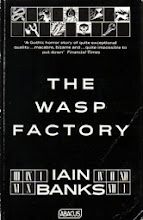 I picked up this book from a lovely second hand bookshop in Whitby called Endeavor Books, a great place to lose yourself for an hour or two. As always with poetry books I flicked it open and if something does not catch my eye, I put it back. This one fell open on A Hip Flask and I was hooked. I read the whole book in an evening and found many that I liked and have shared with others many times. While some of the longer poems do not appeal as much, the shorter ones I find interesting and intriguing.
I picked up this book from a lovely second hand bookshop in Whitby called Endeavor Books, a great place to lose yourself for an hour or two. As always with poetry books I flicked it open and if something does not catch my eye, I put it back. This one fell open on A Hip Flask and I was hooked. I read the whole book in an evening and found many that I liked and have shared with others many times. While some of the longer poems do not appeal as much, the shorter ones I find interesting and intriguing.I tend to mark my favourites so I can easily find them when I need to revisit them. In this book these include the strange and disturbing Man with a Golf Ball Heart, the almost nightmarish, Dr Phibes quality of The Anaesthetist, or the funny but poignant C.V. It contains a mixture of rhyming and non rhyming poems.
A Hip Flask
To bring about safe passage to the States
and back, when taken from its sleeve or pouch
this gift sits where it should, tucked like a gun
inside the holster of a pocket, snug
against the leg or thigh or buttock, but
more suitably it fits the chest, the breast,
top left inside a jacket, where it feels
like armour plating or a sheriff's shield.
Good going for a little silver tin:
convex, concave, reflective on the out
and on the in. Misplaced, but then again
not knowing one malt from the next it's gin
that I'll be swigging, tipping to the lips
or sipping from the thimble of its lid.
I have a watch, map, toothbrush, cards and cash,
a licence, permit, pass, a ticket
going Eastern Seaboard, Central, Mountain
and Pacific,
and a hip flask: tailored, weighed
and measured, worked both ways, this present made
to hide the heart and hold the heart in place.
Simon Armitage
If you want to know more about Simon Armitage, here is a link to his website...
http://www.simonarmitage.com/

























